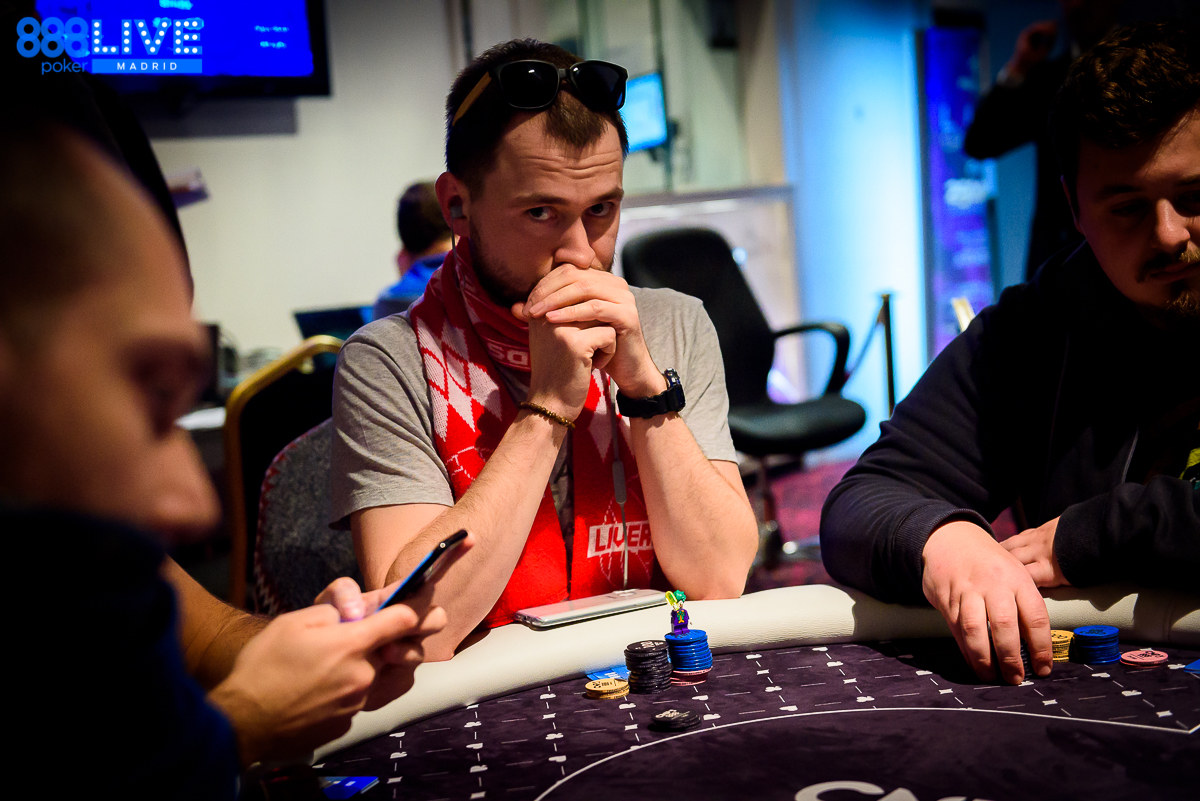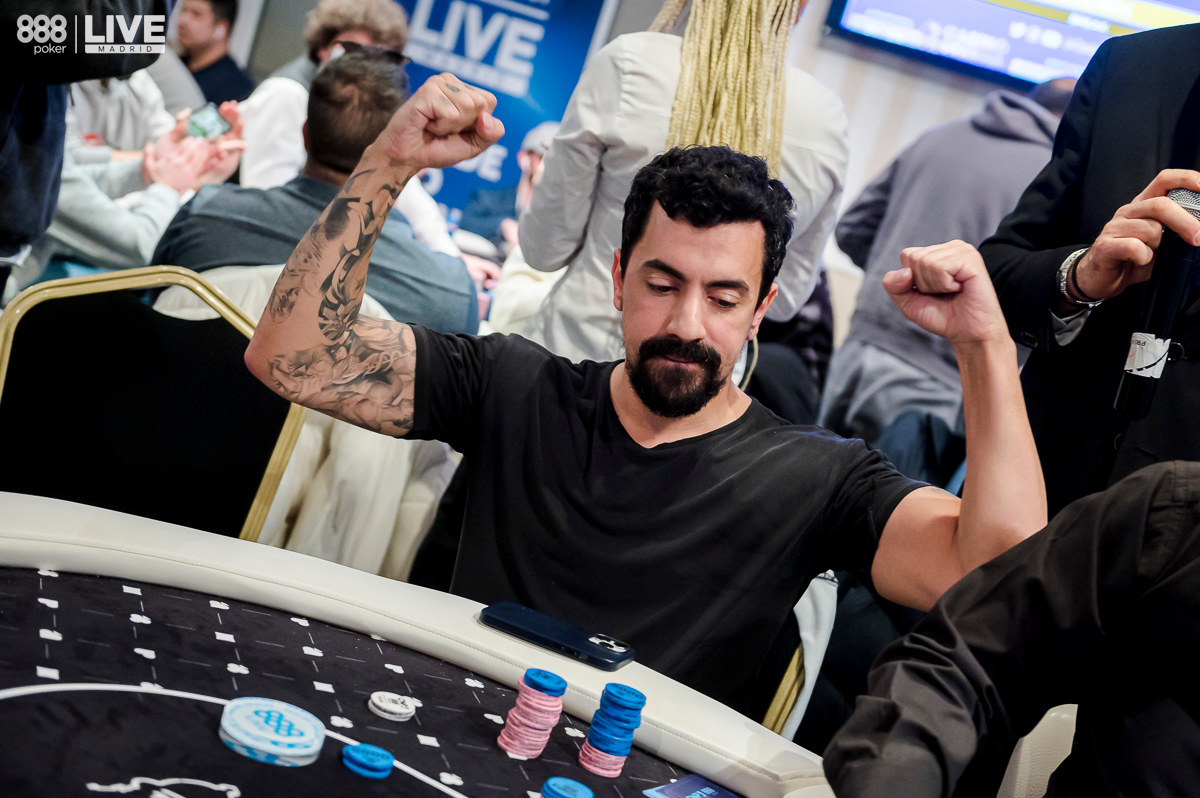Much like life, poker is filled with unexpected twists and turns. Whether it's a losing streak at the poker table, a sudden personal setback, or an unforeseen professional challenge, adversity is an inevitable part of the human experience.
The key to success lies not in avoiding these obstacles but in transforming them into opportunities for growth and improvement.
This 888poker article will teach you practical strategies for embracing challenges and turning adversity into a powerful motivator.
Adopting a growth mindset, reframing negative thoughts, and building resilience can transform obstacles into stepping stones towards success.
Adversity vs Challenge
Adversity refers to any difficulties or misfortunes that we encounter. In the poker world, adversity can take many forms:
- Losing a big poker hand
- Being on a long downswing
- Or facing a particularly tough opponent
Adversity outside of poker might involve personal setbacks such as a health issue, a job loss, or relationship problems.
These events can feel overwhelming and insurmountable, often triggering negative emotions such as frustration, anxiety, and despair.
- On the other hand, a challenge stimulates and engages your abilities. Challenges can be opportunities for growth and development.
- When we reframe adversity as a challenge, we shift our mindset from feeling victimised to empowered.
This shift can significantly enhance our motivation, resilience, and problem-solving skills.

When you see adversity as a challenge, you can be more motivated to overcome it. Challenges are tasks requiring effort and skill, which can be highly motivating.
Furthermore, when you see difficulties as challenges rather than threats, you are more likely to persist and find ways to overcome them.
This mindset builds resilience over time.
Finally, a challenge-oriented mindset encourages creative problem-solving and adaptability. Instead of feeling stuck, you look for solutions and strategies to tackle the issue.
For example, a player experiencing a downswing might feel demoralised. If they choose to see this downswing as a challenge instead, they can focus on the following –
- Analysing their game
- Identifying areas for improvement
- Developing new strategies (involving combinations in poker)
This proactive approach improves their game and enhances mental toughness.
Turning an adversity into a challenge transforms how you deal with difficulty. Once you do this, there are several more psychological strategies and tools that you can use.
Choosing A Growth Mindset

Adopting a growth mindset can help transform any adversity into a challenge. Carol Dweck coined the term and, according to her, a growth mindset is the following –
A belief that you can develop abilities and intelligence through dedication and hard work.
This conviction contrasts with a fixed mindset, where people believe their abilities are static and unchangeable.
When you use a growth mindset, mistakes and failures are not evidence of a lack of ability but opportunities to learn and grow. This perspective is particularly useful in poker, where setbacks are inevitable.
Instead of viewing a bad beat (poker lingo for losing with a strong hand) or a string of losses as a reflection of your worth, choose to see it as a tool for improvement.
Steps to Developing a Growth Mindset
1), Focus on Effort & Progress: To develop a growth mindset, you must train yourself to focus on effort (the strategic decisions you make) rather than results (whether you won or lost). This method is process thinking, but most poker players are results-oriented, which is not helpful when dealing with adversity.
Tracking your progress is a fantastic way to see how far you have come and what improvements you have made.
2). Seek Feedback and Use It Constructively: Get feedback from a coach or a database analysis. Remember, feedback is not a criticism but a tool to get better.
3). Embrace Challenges: If you want to get better at poker, you’ve got to take chances. You can’t be afraid to step out of your comfort zone. This challenge might mean moving up stakes or even learning a new variant of the game – like 3 Card Poker. Either way, look for opportunities to keep taking your game to the next level.
4). Persist When Things Are Going Poorly: Remind yourself that persistence is the key to overcoming challenges when you’re running bad or on a downswing. Staying determined is what separates winners from losers. The secret is to look at your failures and find ways to improve.
The easiest way to shift to a growth mindset is to practise reviewing your sessions. After each session, note any challenges you faced and consider how you can approach them as an opportunity to learn and improve.

You can also make note of any lessons or takeaways from the session. Finally, keep a close record of your progress and celebrate even small wins.
As you can see, cultivating a growth mindset can transform how you perceive and respond to adversity.
This mindset will help you respond to poker’s challenges with confidence and resilience, which we’ll discuss in the next section.
Building Resilience
Building resilience is another tool that can help you effectively approach adversity.
Resilience is the ability to do the following three things –
- Bounce back from setbacks.
- Adapt to challenging situations.
- Continue moving forward in despite obstacles.
Resilience is not about avoiding stress or never experiencing failure. Instead, it's about developing the capacity to recover from difficulties and grow stronger.
Resilient people view setbacks as temporary and manageable, and they use these experiences to enhance their skills and strategies.

There are many ways to build resilience, but the most essential include the following –
- Developing emotional regulation skills
- Building a support network
- Practising self-compassion
The easiest way to build emotional regulation skills is to regularly practise mindfulness, such as meditation or deep breathing. This will help you stay in the present and manage stress.
In particular. meditation teaches you to observe emotions without becoming overwhelmed.
Developing and maintaining solid relationships with family, friends, and poker players is crucial for building a strong support network. A strong support network can offer you support and perspective during tough times.
If you’re having a particularly tough time at the tables, enlist the help of a coach. Whatever you do, don’t try and go it alone!
Practising self-compassion is one of the least talked about and most critical components of building resilience. Many players think that being hard on themselves is the only way to get better, so they spend a lot of time beating themselves up.
Research shows this is not the optimal way to treat yourself.

Instead, it’s essential to be kind to yourself.
Treat yourself with the same kindness and understanding that you would offer a friend. Self-compassion works because it reduces negative self-talk and promotes a healthier emotional state.
- An easy way to do this is to acknowledge your efforts.
- Take the time to recognise the hard work and effort you put into overcoming challenges, regardless of the outcome.
- This shift in focus from results to effort can enhance your resilience.
Realise that building resilience is a continuous process requiring consistent effort and practice.
Developing emotional regulation skills, building a solid support network, and practising self-compassion can enhance resilience and effectively transform adversity into a challenge.
How to Transform Adversity into Challenge – Conclusion
Viewing adversity as a challenge is a skill that can help you in poker and life.
Adversity is an inevitable part of poker…
But with the right mindset and strategies, you can enhance your resilience, maintain motivation, and turn every setback into an opportunity for growth.
Whether facing a tough hand on a crazy poker board or a significant life challenge, these techniques will empower you to rise above adversity and achieve your highest potential!


